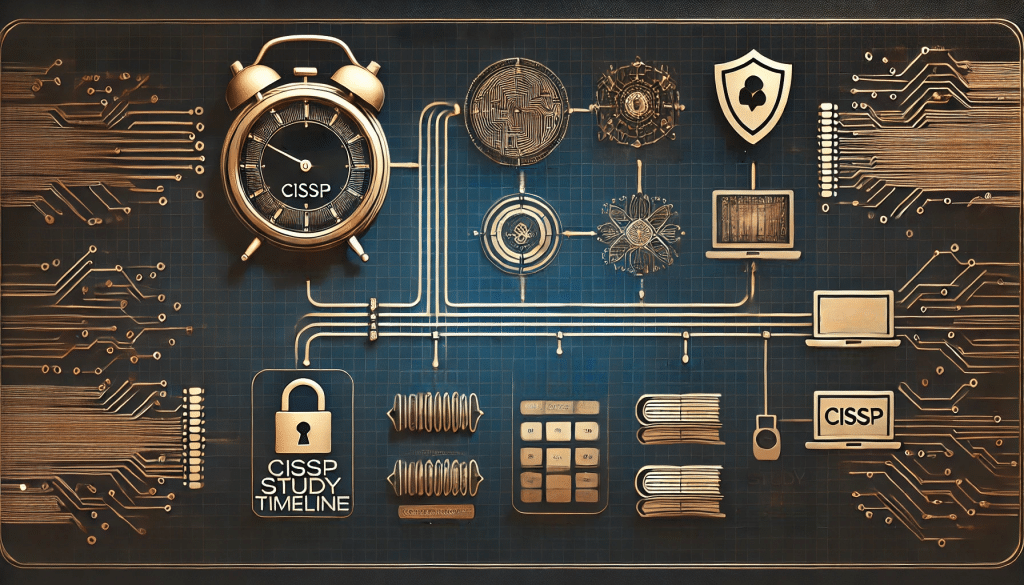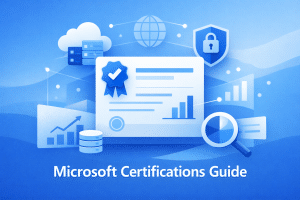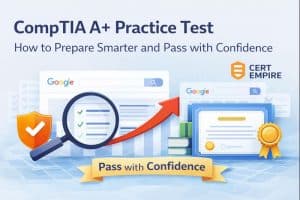CISSP exam preparation takes anywhere between 3 to 6 months. If you are a cyber security enthusiast with hands on experience in relevant domains you can pass it with 2-3 months preparation, otherwise 6 months of continuous preparation is a must.
So, you’re thinking about getting the CISSP certification. Great move! For many cybersecurity professionals, the CISSP (Certified Information Systems Security Professional) is a big career milestone. This destination certification holds weight in areas like network security, security operations, and risk management. But let’s be real, this isn’t a light lift. You’re probably wondering: How long does it really take to prepare for the CISSP exam? Well, the answer is, “It depends.” Let’s break down what affects your timeline and go through some realistic study plans.
A Realistic Look at CISSP Study Time
Some people breeze through CISSP prep, while others take their time and that’s okay! Here’s what impacts how long it’ll take you to get ready.
1. Experience in Cybersecurity and Familiarity with Key Concepts
Your background in information security makes a difference. If you’ve been around topics like security architecture, asset security, or software development security, you’re likely ahead of the game. Experienced cybersecurity professionals already have a foundation in these areas, so they might only need a couple of months to study. New to information security? You might want to allow more time to feel confident with all eight CISSP domains.
2. How Much Time Can You Commit?
Let’s be honest—getting CISSP-certified takes time, especially if you’re juggling a full-time job or other commitments. Some people study full-time and manage to pass within a month or two, but most professionals go part-time with it, fitting in study sessions around everything else. For those working full-time, aiming for six hours a week of study time is a realistic goal. If you can dedicate more, great! Just make sure it’s sustainable, or you’ll risk burning out.
If you want a deeper breakdown of what makes the test challenging, see our guide on how hard the CISSP really is.
3. Your Study Resources and Practice Exams Matter
The resources you use can make or break your CISSP prep experience. With the right tools, you’re much more likely to feel prepared when exam day rolls around. Standard resources include the Official CISSP Study Guide, video courses, and, of course, practice exams. These aren’t just about drilling facts—they help build confidence. Practicing in a test-like setting lets you know what to expect, reducing surprises when you’re actually sitting for the exam.
4. Learning Style and Study Environment
We all learn differently, right? Some people need visual aids and love video courses, while others want detailed reading material. Find what works for you. And don’t underestimate the power of a good study environment! A quiet, organized space—free from distractions—goes a long way toward helping you focus and retain what you’re learning. If you’re constantly being interrupted, you’ll probably need more time.
For a complete overview of the exam format, domains, and strategies, check out our detailed CISSP exam guide.
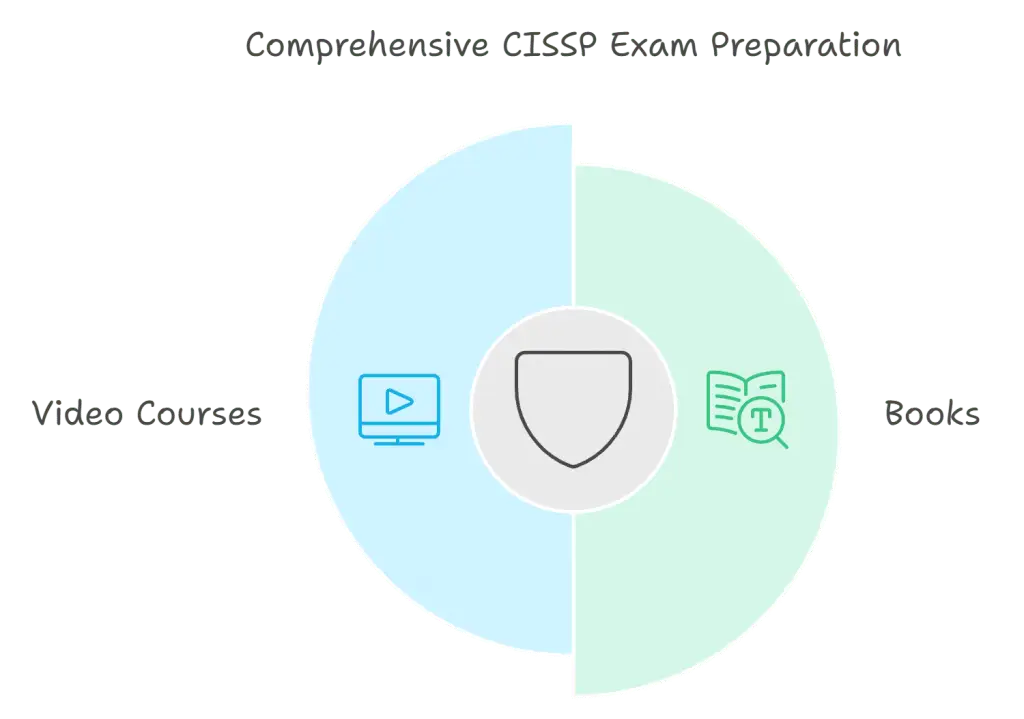
How Long to Study for CISSP: Different Timelines Based on Experience
Since everyone’s background varies, here’s a look at how long CISSP prep might take based on different experience levels.
CISSP Preparation Timelines Based on Experience
| Experience Level | Prep Duration | Study Approach |
|---|---|---|
| Cybersecurity Experts (strong hands-on background) | 1–2 months | 6+ hours daily intensive study; review weaker domains; focus on practice exams for final prep. |
| Intermediate Professionals (some cyber experience) | ~3 months | 2–3 hours daily; structured domain-by-domain study; regular practice exams to reinforce learning. |
| Beginners / Part-Time Learners (little/no background) | 6 months or more | 6–8 hours weekly; slow, steady coverage of all 8 domains; frequent practice tests to aid retention. |
| Tip Consistency matters more than speed. Break the exam outline into weekly goals, mix in practice exams, and remember: CISSP requires a passing score of 700/1000. | ||
Cybersecurity Experts (1-2 Months)
If you’re already well-versed in information security concepts like risk management and access management, you might only need a month or two. This is the fast track—think about studying six hours a day for an intensive push. This plan is doable if you’re feeling confident in most areas and only need to brush up on specifics.
Intermediate Experience (3 Months)
For professionals with some but not extensive cybersecurity experience, three months tends to be the sweet spot. Studying for about two to three hours daily is manageable on this schedule. You’ll cover each CISSP domain and have time to reinforce knowledge with practice exams.
Beginners or Part-Time Learners (6 Months or More)
If you’re new to cybersecurity or can’t study full-time, a six-month plan is ideal. Spending six hours weekly will keep you progressing without overwhelming you. Regular practice tests are especially important here—they help you retain what you’re learning over a longer timeline and prevent surprises on exam day.
Crafting a Study Plan That Works for You
So, how do you create a study plan that’s realistic? Here are a few quick tips that have worked for others on the CISSP path.
Set Weekly Goals You Can Stick To
Dividing the CISSP exam outline into weekly goals is a great way to keep things manageable. You might dedicate one week to security assessment and another to access management. This structure gives you a roadmap and helps prevent last-minute cramming.
Take Practice Exams—Often
Think of practice exams as dress rehearsals. They help you get comfortable with the test format and timing, and they let you know where you’re strong (and where you’re not). Try taking a practice exam every few weeks. To get started, check out free CISSP practice question and experience what real exam-style questions feel like. The goal isn’t just to pass the test but to feel prepared and confident on exam day.
Give Yourself Permission to Take Breaks
Studying for the CISSP is a marathon, not a sprint. Taking breaks helps keep your focus sharp and prevents burnout. Brief pauses during long study sessions help you retain information better and keep up your energy.
As you take practice tests, keep in mind the official CISSP passing score requirement of 700/1000, so you can benchmark your readiness accurately.
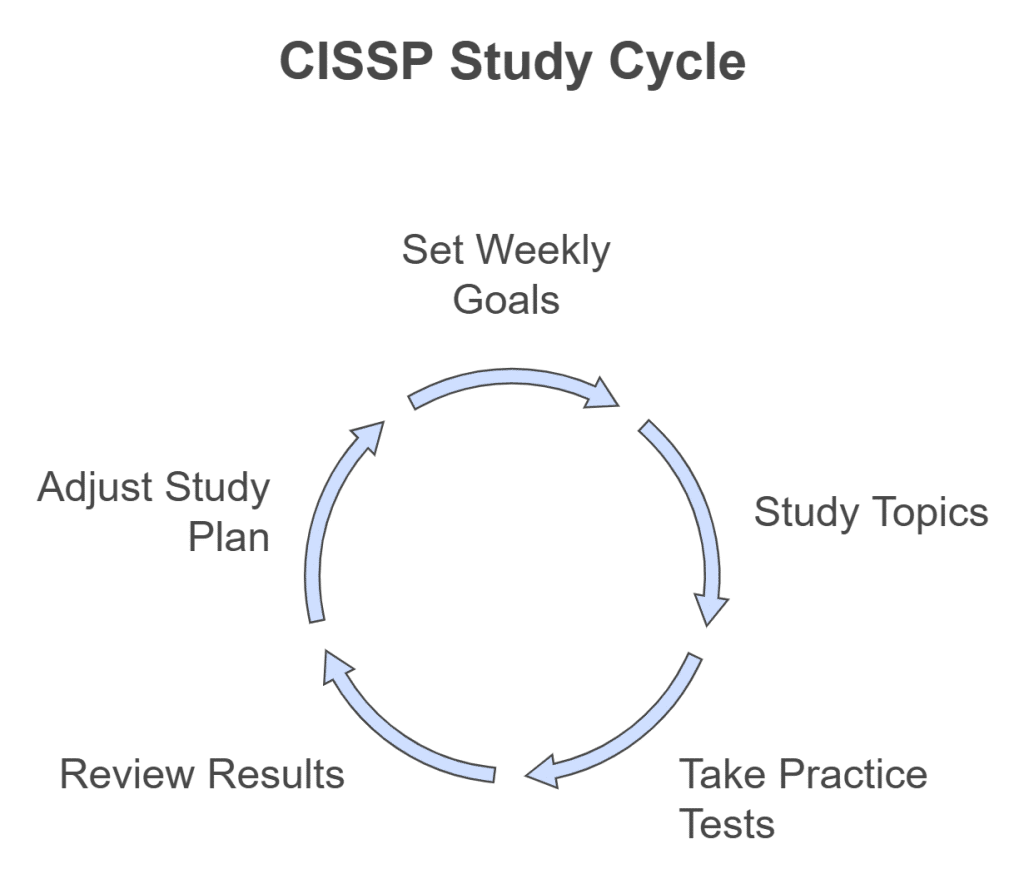
Essential CISSP Resources for Exam Success
The right resources can make a huge difference. Here’s what many CISSP candidates have found helpful:
Study Guides: Your CISSP Foundation
Both the Official CISSP Study Guide and the CISSP All-in-One Guide cover each domain in depth, giving you a solid understanding of information security concepts. These guides are thorough and include practice questions at the end of each chapter so you can check your progress. They’re also aligned with the official exam outline, which means you’ll cover everything needed for exam day.
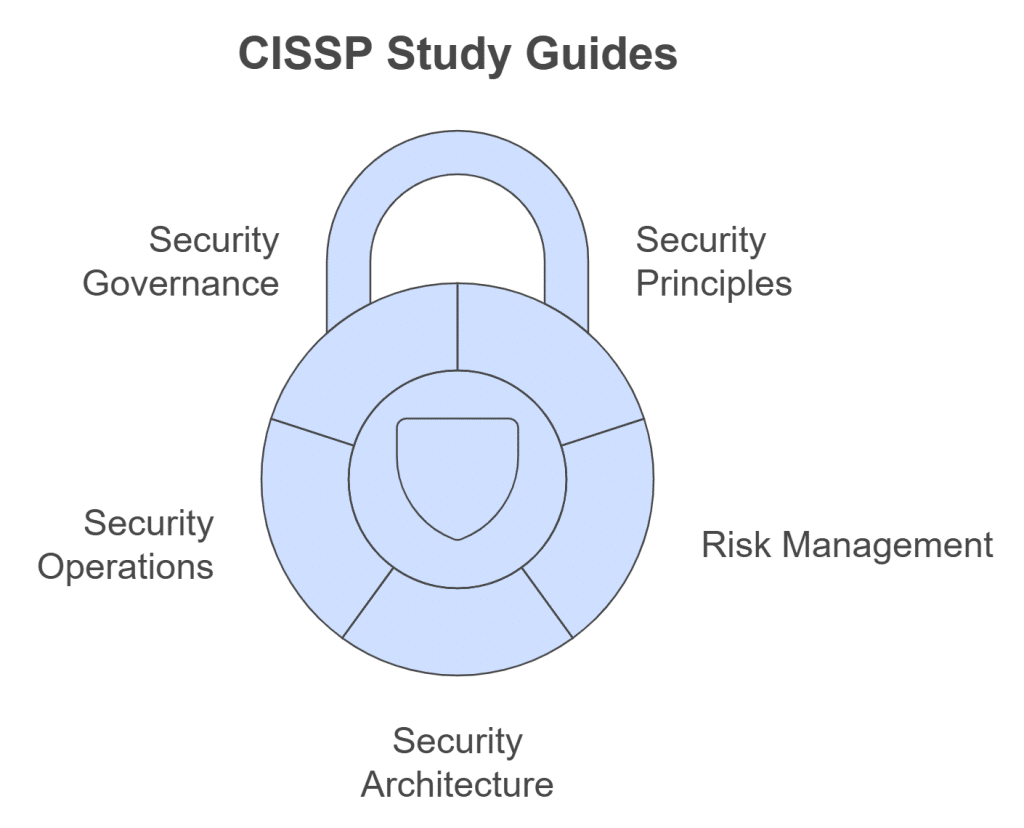
Practice Exams: Getting Comfortable with the Format
Practice exams are essential for more than just review. They’re your chance to get familiar with the question style, the time limit, and how you’ll feel on test day. Start with shorter practice tests, then try a full-length exam to build stamina. These tests not only measure what you know—they also boost your confidence.
Video Courses and Flashcards: Mixing It Up
Video courses are great for those who need structure or prefer visual aids. Watching an expert walk through topics like security architecture or access management can make challenging ideas more accessible. Flashcards are a fantastic supplement, helping you memorize key terms and concepts quickly. Platforms like Quizlet have ready-made CISSP sets that you can use for quick reviews.
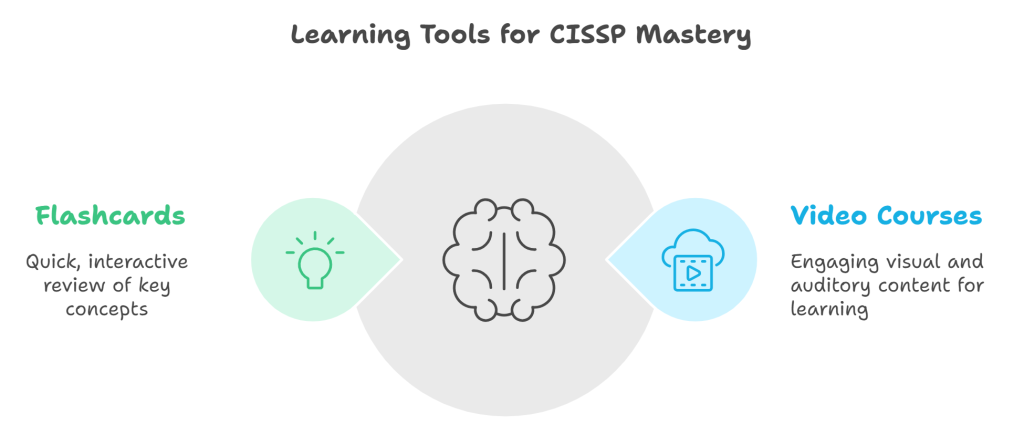
Community Forums and Study Groups: Support and Real-World Advice
Joining a study group or online community forum can make a huge difference in keeping up motivation. Places like Reddit, TechExams, and even (ISC)²’s own forums are great for connecting with others who are also preparing. You can share resources, ask questions, and get tips from people who’ve been through it. And if you’re struggling with a concept, someone out there has probably figured out a way to explain it!
The effort pays off, not just in knowledge but also in earning potential. Certified professionals often enjoy some of the highest CISSP salary packages in cybersecurity.
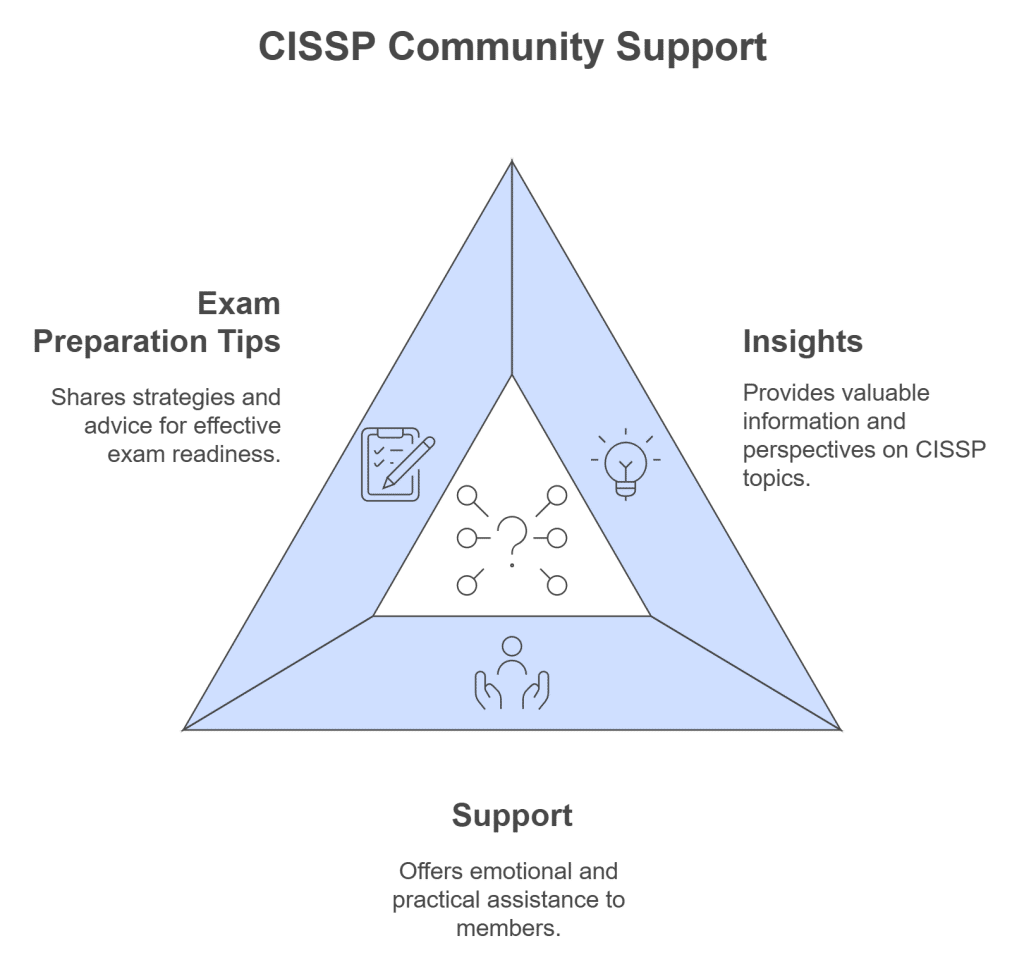
People Also Ask – FAQs
How long do I need to study for CISSP?
The time it takes varies, but most people with experience in cybersecurity spend about 2-3 months. Beginners may need closer to six months. The key is consistent study time each week to ensure you’re covering all the material.
Can I pass the CISSP in 3 months?
Yes, passing in three months is doable, especially if you have a background in information security. This plan requires around six hours of study each day, along with frequent practice exams to make sure you’re on track.
Is the CISSP exam hard?
It can be challenging because it covers a wide range of topics, from asset security to risk management. Many people find the variety of concepts difficult, especially if they’re new to cybersecurity. That said, a strong study plan and practice exams help a lot.
What is the CISSP pass rate?
While official numbers aren’t provided, the CISSP is known to have a moderate pass rate. Preparation and practice tests improve your odds of passing on the first attempt.
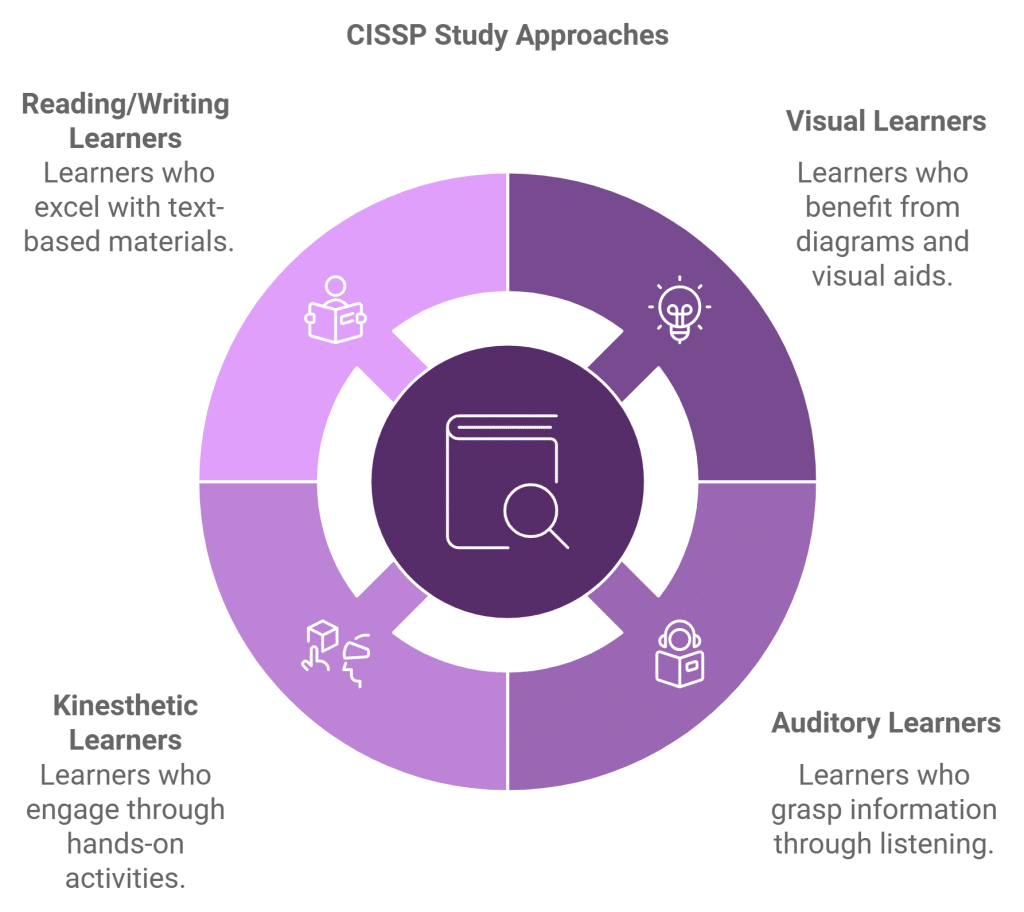
Wrapping Up: Your Path to CISSP Success
The CISSP exam is challenging but rewarding for those committed to advancing in information security. Whether you’re going for a fast-track plan or taking it slow, having a solid study plan and the right study guides and practice exams like Cert Empire can make a big difference. Remember, this journey isn’t just about passing a test—it’s about building a foundation for long-term career growth in cybersecurity.

